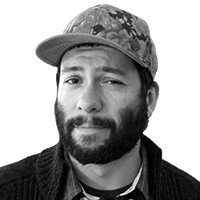After months of racial tension and protests against police across the United States, a few entrepreneurial folks are coming out on top.
This unrest has escalated after the deaths of three black men at the hands of police: the shootings of Michael Brown in Ferguson, Missouri, and Akai Gurley in Brooklyn—both of whom were unarmed—and Eric Garner, who died after being held in a chokehold by an NYPD officer. Protesters have taken to the streets in almost every major metropolitan area, with slogans emerging, like Garner’s final pleas of “I can’t breathe” and “black lives matter.”
This is where the opportunistic businessperson comes in.
A quick Internet search for “I Can’t Breathe t-shirt” brings up dozens of options from sites like Zazzle, Etsy, and eBay, as individuals with access to screen-printing equipment attempt to spread the message and make a few bucks. These are no doubt profitable, as athletes, celebrities, and musicians have made statements—and raised demand—by wearing them publicly.
Then there’s Jason Barthel, a police officer from Mishawaka, Indiana, who owns a screen-printing and embroidery company. Barthel decided to get in on the action with shirts supporting the police that read “Breathe Easy: Don’t Break the Law,” a move that has gained him international attention.
Despite vandalism to his storefront and a request to cease production by members of his local city council, who called the shirts “divisive” and “dangerous,” the shirts are still for sale.
And business is booming.
Originally a run of 200 shirts at $7.95 apiece, the price quickly went up to $9.95 as demand increased. The product line for his now-trademarked term grew to include long-sleeve shirts, hoodies, crew necks, hats, wristbands, and license plates.
“We have sold about 45,000 of the black T-shirts, and we’ve sold probably close to 3,000 hooded sweatshirts and miscellaneous other items with the Breathe Easy emblem on them in the last month. Not even a month,” Bob Herwick, the manager of Barthel’s printing company, told The Daily Beast when reached by phone. “We’ve covered every state in the U.S., all the Canadian provinces, Italy, Ireland, England, Australia, the United Kingdom, Kuwait, Philippines, Mexico. It’s a lot.”
It is a lot. A lot of money.
Forty-five thousand T-shirts at $9.95 each is $447,750. Then, splitting the difference, factor in 1,500 sweatshirts at $29.95 and 1,500 “other items,” at the minimum price of $9.95. That’s $59,850, and a total take of $502,600.
Assuming he’s at least keystoning, a retail term for making a 100 percent margin, Barthel has $251,300 in profit—a pretty penny on the backs of three dead black men and the grief of two assassinated NYPD officers.
Out of the windfall, Barthel has made one tax deductible $5,000 donation to a local foundation set up in the names of two police officers who were killed in the line of duty.
From the revolutionary side, We Will Not Be Silent, a self-described “artist/activist collective,” boasts a line of more than 50 slogans dealing with issues from climate change to Palestine, Tibet, whistleblowers, and, of course, these most recent civilian deaths.
We Will Not Be Silent’s precursor, The Critical Voice, had its own international attention moment, when Arab-American blogger Raed Jarrar was barred from boarding a Jet Blue flight while wearing one of their T-shirts that said, in Arabic, “We Will Not Be Silent,” on Aug. 12, 2006.
Interviewed by Democracy Now host Amy Goodman on Sept. 1, 2006, Laurie Arbeiter, organizer of the T-shirt campaign and one of the founders of We Will Not Be Silent, admitted they had sold “several thousand at this point.”
More recently, in an interview with Arbeiter last December, The Indypendent upped that to “more than 70,000” of the shirts, which retail online for $16.
That’s a total of $1,120,000.
Last September, We Will Not Be Silent held a successful Kickstarter campaign to create “Unarmed Civilian” T-shirts, which they handed out in Ferguson while protests were underway. In all, the group claims to have delivered 770 of the simple black-with-white-letter shirts at the price, based on their $7,867 raised, of $10.21 each. The shirts are for sale on their website for $15, though they do offer a pay-what-you-wish option via email or in person for all of their designs.
Research online and through calling screen-printing shops puts the estimated cost per shirt, for 770 black premium American Apparel T-shirts with a white text print, at between $5.75 and $8 each. (The price varies with the relationship between the customer and the printer.)
Neither Arbeiter nor her partner, Sarah Wellington, would comment on the record.
Both are fixtures at protests around New York City, where they give away thousands of pre-printed signs bearing phrases like “Police Brutality Is Tyranny,” “Don’t Shoot,” and “We Can’t Breathe,” as well as the names of more than 150 people “killed or brutalized with impunity.” At a recent Akai Gurley rally, the pair denied all offered donations for the signs.
When approached at that time by The Daily Beast, Arbeiter, who noted they had turned down several profiles in major magazines, would only say, “It’s more interesting who’s holding the signs than who’s making them.”
Modesty and free signs, aside, We Will Not Be Silent has evolved into a million dollar-plus enterprise.
There is no obvious language on We Will Not Be Silent’s website that they donate a portion of their proceeds, and they do not appear to be registered as a nonprofit. This raised the eyebrows of Shavon Ford, a community organizer behind the Gurley rally.
“Their signs bring greater uniformity and a powerful message to the movement. The Carry the Names element is breathtaking and brings greater realization to the crisis we are facing in the USA; seeing all the names is like seeing all the bodies and feeling all the sorrow,” he said via email. “I would like to have the artists work closer with the families to help them raise money for the families, because the victims are mainly from impoverished, low-income and moderate-income families and they need financial support.”
How altruistic should opportunistic entrepreneurs be in situations like this? There’s a public demand for what they’re selling, but is there also an overarching responsibility to the victims or their families or those otherwise affected by the issues that spawn the demand? Is simply living the life—be it as a full time police officer or professional protester—reason enough to reap hefty profits for having a well-timed entrepreneurial bent and the resources to capitalize on it?
These are questions that can only be answered on an individual basis, but it’s probably a lot easier to justify if you’re sitting on an ever-growing pile of cash.






